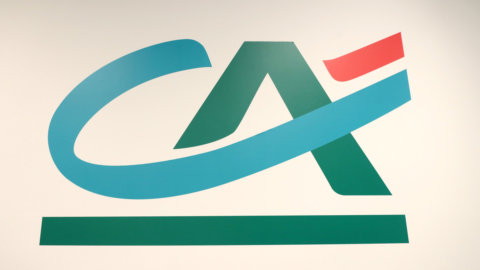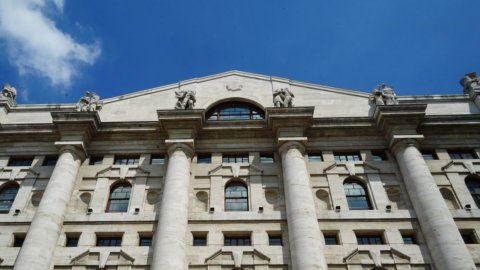The file Credit Suisse for now it seems to have been cataloged by European lists as not risky from a systemic point of view. But for the Swiss Federation and its banks, the matter of the merger between the two does not seem to end with the injection of funds and the elimination of assets. Many clouds are rising full of doubts and legal appeals.
On the Milan stock exchange, the Fitse Mib rises by 2,60% with the banking sector which rises by 4,90%. The Ubs stock gains 6,38% and even the Credit Suisse stock takes home a +1,94% at the end of the morning.
Legal action in the starting blocks
The matter of giving precedence to the shareholders over the bondholders, reversing the rules dictated by the BRRD (Bank resolution regulatory directive) does not really go down to investors. As is known, based on theUBS-Credit Suisse merger agreement, holders of Credit Suisse AT1 bonds will receive nothing, while shareholders, who typically rank below bondholders in terms of who gets paid when a bank or company fails, will receive $3,23 billion. And the lawsuits are already starting to roll in.
An army of lawyers Switzerland, the United States and the United Kingdom are in discussions with some Credit Suisse AT1 holders over possible actions, law firm Quinn Emanuel Urquhart & Sullivan said, according to Reuters. And Quinn Emanuel himself said he is in talks with Credit Suisse AT1 bondholders who represent a "significant percentage" of the instruments' total notional value.
In United States to move are some New York law firms including Levi & Korsinsky and Bronstein, Gewirtz & Grossman who have already notified investors of two initiatives, according to Bloomberg reports. “The lawsuit on behalf of Credit Suisse investors has been filed in the United States District Court for the District of New Jersey,” the Levi & Korsinsky statement said. The initiative is aimed at investors who "bought or otherwise acquired certain Credit Suisse securities between December 1, 2022 and February 17, 2023".
What is the lawsuit based on?
The dossier filed by the studio Levi & Korsinsky claims that the bank would have made false and/or counterfeit statements regarding these facts: (i) contrary to what was stated in December 2022 by the president of Credit Suisse, Axel Lehmann, the sharp increase in customer outflows that Credit Suisse began recording in October 2022 has continued; (ii) as a result, Credit Suisse had underestimated the impact the firm's recent string of quarterly losses, risks and compliance failures on liquidity and its ability to hold client funds; (iii) as a result, Credit Suisse had overvalued the financial position and/or the prospects of the company; and (iv) accordingly, the public statements of the company were basically false and misleading at all relevant moments.
But there is another issue that could be attacked by law firms: the one concerning the decision of the FINMA regulators, taken with the support of the government and the managers of the two banks, to proceed with the merger without going through a vote of approval at shareholders' meetings.
New moves are expected soon
While on the one hand the Swiss authorities have not spoken since the weekend, on the other some are expecting it new moves, even in the next few days. The law firm Quinn Emanuel Urquhart & Sullivan for example expects for tomorrow 22 Marchthat a statement be made for bondholders. Other sources are expecting a retraction of that zeroing, with ways to give some sort of refund.
After all, it is the Swiss authorities themselves who have kept a door open: "At first it was a question of finding a solution for the protection of savers and the image of the Swiss financial centre", said a spokesman for the Federal Authority of supervision of the financial markets (Finma), last weekend, adding: "Secondly, other issues will have to be clarified".
Who owns the infamous Credit Suisse At1? Pimco at the forefront
Funds managed by Lazard Freres Gestion, PIMCO and GAM Investments were among the most exposed to Credit Suisse AT1 debt in terms of portfolio weighting at the end of February, based on Morningstar data compiled by Reuters, making them potentially vulnerable to losses due to the cancellation of obligations.
PIMCO extension according to data from Morningstar, the giant investment firm with nearly $1800 trillion in assets under management held 3,49% of its €5,66 billion GIS Capital Securities Fund in Credit Suisse AT1 bonds and should see it go up in smoke 807 million dollars. Losses which, however, would be partially compensated by the increase recorded on other bonds in the belly of the company and whose value has grown after the intervention of Ubs. In second place among the holders there would be instead Invesco worth $370 million. As for BlackRock, the exposure on the canceled bonds would be 113 million.
Still shadows on the Swiss sky
There are also some background considerations. For example, there are those who cannot understand the save operation numbers on the Swiss institute by Ubs. “To disburse only 100 billion francs, albeit together with the presence of a 3 billion franc liquidity line from the Swiss National Bank, seems to me nonsense, said Antonio Foglia in an interview with Sole24ore. Vice President of Banca del Ceresio and member of the Global Partners' Council of the Institute for New economic thinking, "considering that Credit Suisse has 39 billion of capital and 99 billion of Tlac (Total loss absorbing capacity)".
Other dark sides concern the so-called “belly” of Credit Suisse. Last June, a Swiss court condemned the bank for failing to prevent its accounts from being laundered by a Bulgarian gang of cocaine traffickers. After all, the issue of dirty money remains one of the voices of the Swiss banking system. Months ago, the national credit association revealed to Reuters that accounts in Switzerland in the name of Russian citizens are still worth between 150 and two hundred billion euros. The beneficiaries are not known: it is only known that the value of the frozen fortunes does not exceed nine billion, while the rest is available to who knows who. And in November, the Zurich court allowed three oligarchs to be reimbursed under multi-million fines with a strong smell of dirt, as reported by Corriere.
What did Ubs take home with Credit Suisse? Maybe too much ?
There will still be various issues to be clarified, therefore, but at the moment what emerges is that, on the basis of the agreement, between UBS and Credit Suisse, Switzerland will have a Bank whose active will be worth the twice the country's gross product, as Corriere della Sera points out, while the assets under management will be worth six times more than the entire national economy. The new entity will start with 120.000 employees and to supervise it, as well as the other 240 Swiss banks, will be an authority with a task with perhaps just over five hundred employees. Maybe a little too much. And from here must descend a great slimming cure.
Moreover, it had also happened in 2008, in the midst of the Lehaman crisis, when it was UBS itself that was in very serious difficulty, so much so that it had to be helped by the same authorities who now intervened with Credit Suisse, in a sort of game of goose.
Credit Suisse had more than 50.000 employees at the end of 2022, 17.000 of whom are based in Switzerland, but many now fear for their jobs.





